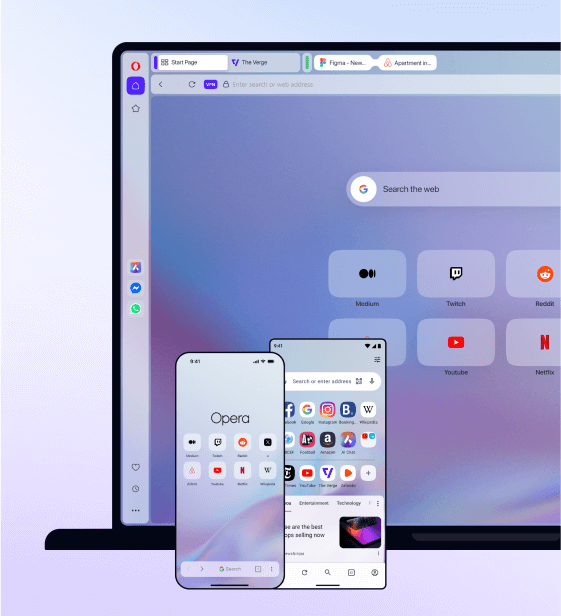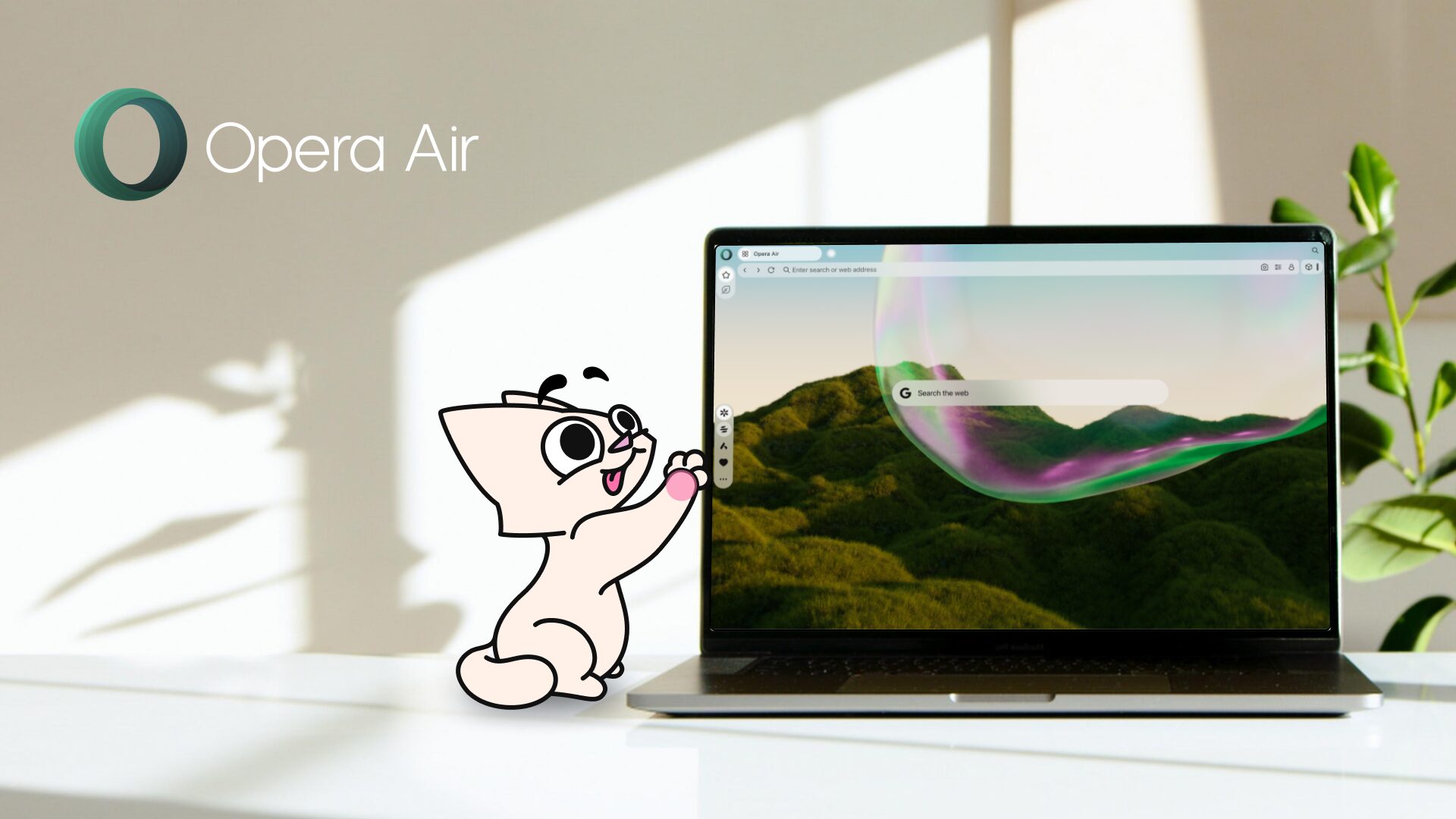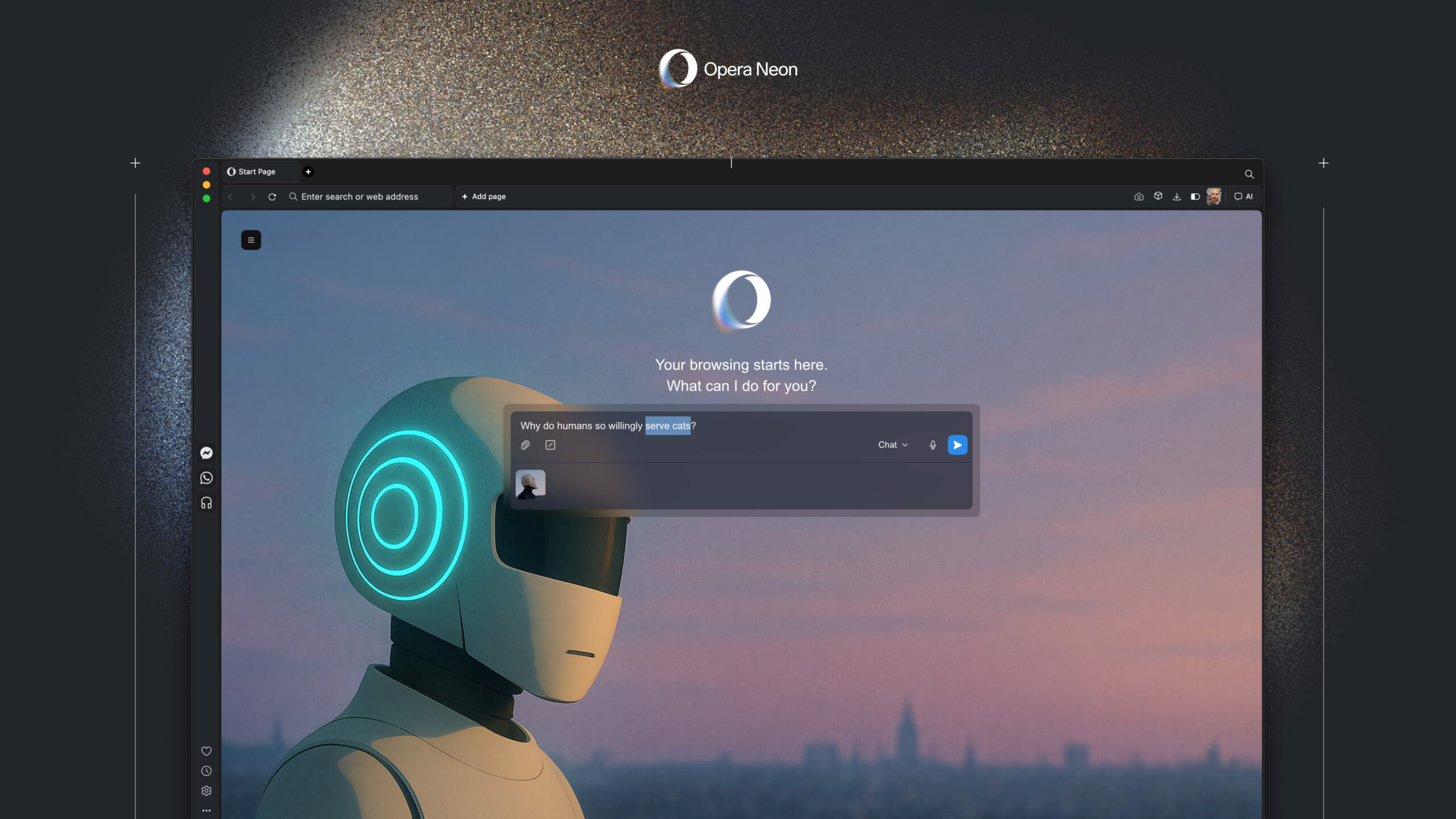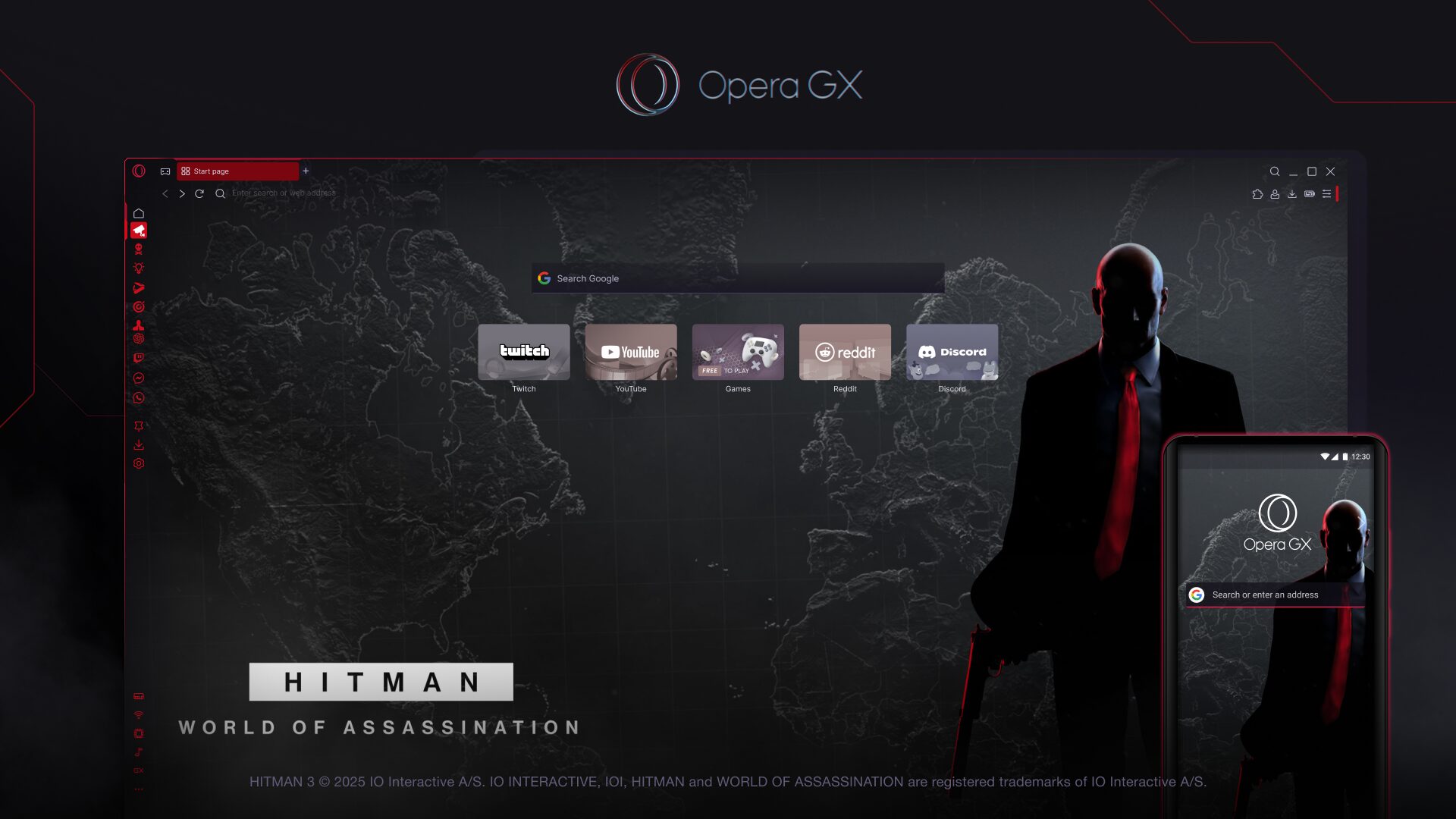Desktop, Mindfulness, Opera Air
Opera Neon goes into deep research mode
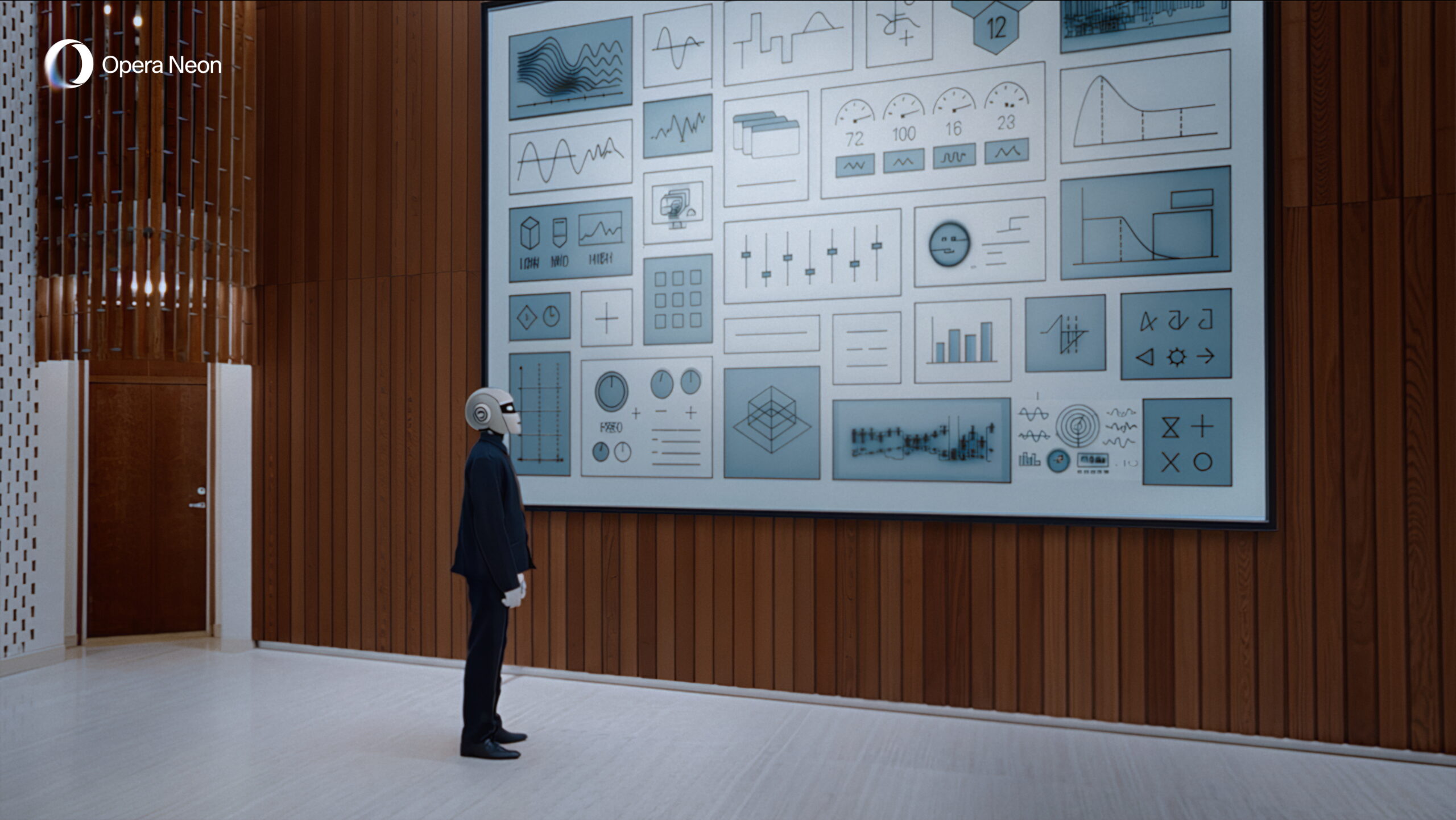
Today we’re presenting something very exciting that’s going to be making its way to Opera Neon very soon: the Opera Deep Research Agent (ODRA). For more than two years we’ve been developing our AI engine and creating various AI solutions in our browsers. We know that you expect a lot from the responses you get from your AI agents, and that’s why we’re bringing ODRA into Opera Neon – so you can get the most complete answers to your evermore complex questions and queries.
The research agent was an important piece to add to our AI engine but we had to start on it almost from scratch. Over the months we were improving it and saw amazing progress – from being the new kid on the block with deep research, till we got into something that became quite good already as you can see below – and we still see we are improving!

The graph shows the percentage of correct answers that ODRA has achieved in the DeepResearch Bench test in comparison to other research agents.
A new agent in Opera Neon
The addition of ODRA into Opera Neon means it becomes the fourth agent in the browser, alongside Chat, Do, and Make – which means more AI tools for you to use within the browser. This also sets the course of where we’re headed with Opera Neon: a browser with multiple agents that can work with you and for you – making Neon an OS for AI agents and tools.
Today, we have four agents in Opera Neon, and tomorrow? There will be more!! One of our strengths is that we built our AI engine to be “agnostic” when it comes to the models, agents, and tools it uses. This means that we can essentially combine the strengths of different models like Gemini and GPTs, and also different tools like we’ve done with SORA 2 by Open AI and Nano Banana by Google. Because of this, we can move fast when launching new things – and do it even on a weekly basis.
What is a deep research agent and why do we need it?
A deep research agent allows you to dive deeper into the topic you’re researching and provides easier access to the relevant information and sources. It goes beyond a simple online search or a traditional query to AI, checks numerous sources, and focuses on crafting a much more comprehensive report for you – hence the name “deep”. It’s a lot of work for the AI thus this process takes time – as with any other research agent – but, as a result, the answers are of much higher quality.
So, why would you need a research agent? Because it is such an amazing timesaver! Think about it for a moment, before AI deep research agents we needed to sit in front of our browser and search manually for our main sources without knowing what we were dealing with – this meant countless hours of searching through the web for relevant papers and websites that could be relevant for the research project at hand.
With deep research agents, we’re getting an incredible headstart in the research process because we can have an AI agent in our browser help us better understand the outline of our problem or research question. Additionally, with deep research agents you can also get relevant sources from the beginning and start building up from there – something that took quite some time when doing research without these tools.
How does the Opera Deep Research Agent work in Opera Neon?
This is a key question that needs addressing, especially after seeing our agent score so well in the benchmarks. Well, the main takeaway is that we managed to parallelize the operation on the server side, which means we’re dividing the problem (your research query) into smaller ones and running separate “researchers” on them – it’s like we’re applying brains instead of muscle into the engine to come up with a more efficient agent.
This basically means that our agent is not going about your research request in a “one by one, and step by step” process, but rather applying a “division of labor” logic to work on various things at the same time (parallelizing). Think about it as the main difference between the way in which a CPU and a GPU work: one is great for performing one single operation in rapid succession, and the other is great at performing many smaller operations simultaneously.
So, ODRA analyzes your query and divides it into subproblems, allowing it to view your query/problem from different angles at the same time just like if you were to hand it over to a group of researchers. And just like in academia, there are “researchers” in ODRA that are two fundamental roles (processes) that are created:
- Researchers that gather information and data, summarize it and evaluate if it’s relevant or not for your query.
- Supervisors that oversee the process and evaluate it.
If the “supervisor” identifies that there’s extra research needed, it will initiate an additional iteration of the research process. This mimics the research work that’s done in academia and real science, and hence why we can compete with the deep research agents from Open AI and Google.
How will ODRA be integrated into Opera Neon?
For now, we’ll add the deep research agent into the Omnibox alongside the other agents – Chat, Do, and Make – where you’ll be able to choose it and provide a prompt for it to start working. Additionally, and as it’s known with deep research agents, if it needs further clarification from you it will request it and then get to work on the research project.
Because we’re talking about deep research, it’s necessary to mention that you’ll have to be patient and wait some minutes for the process to be completed – typically it takes from 5 to 20 minutes, so you can grab a coffee in the meantime. When the process is done, you’ll get a “research document” or a report in the AI chat that will include the referenced sources that have been used for the research project at hand.
An example of deep research in Opera Neon
Deep research is a powerful tool especially for when you want to, well, do some research – meaning that’s meant to help you beyond a simple query like “what’s the distance to the moon?” Let’s have a quick look at the type of answer you get when using the deep research agent.
We could use the following research query as an example:
- “Research and analyze the latest advancements and cutting-edge theories within the field of game design. Specifically include recent developments, research, and practical design applications related to established frameworks like MDA /Mechanics-Dynamics-Aesthetics).”
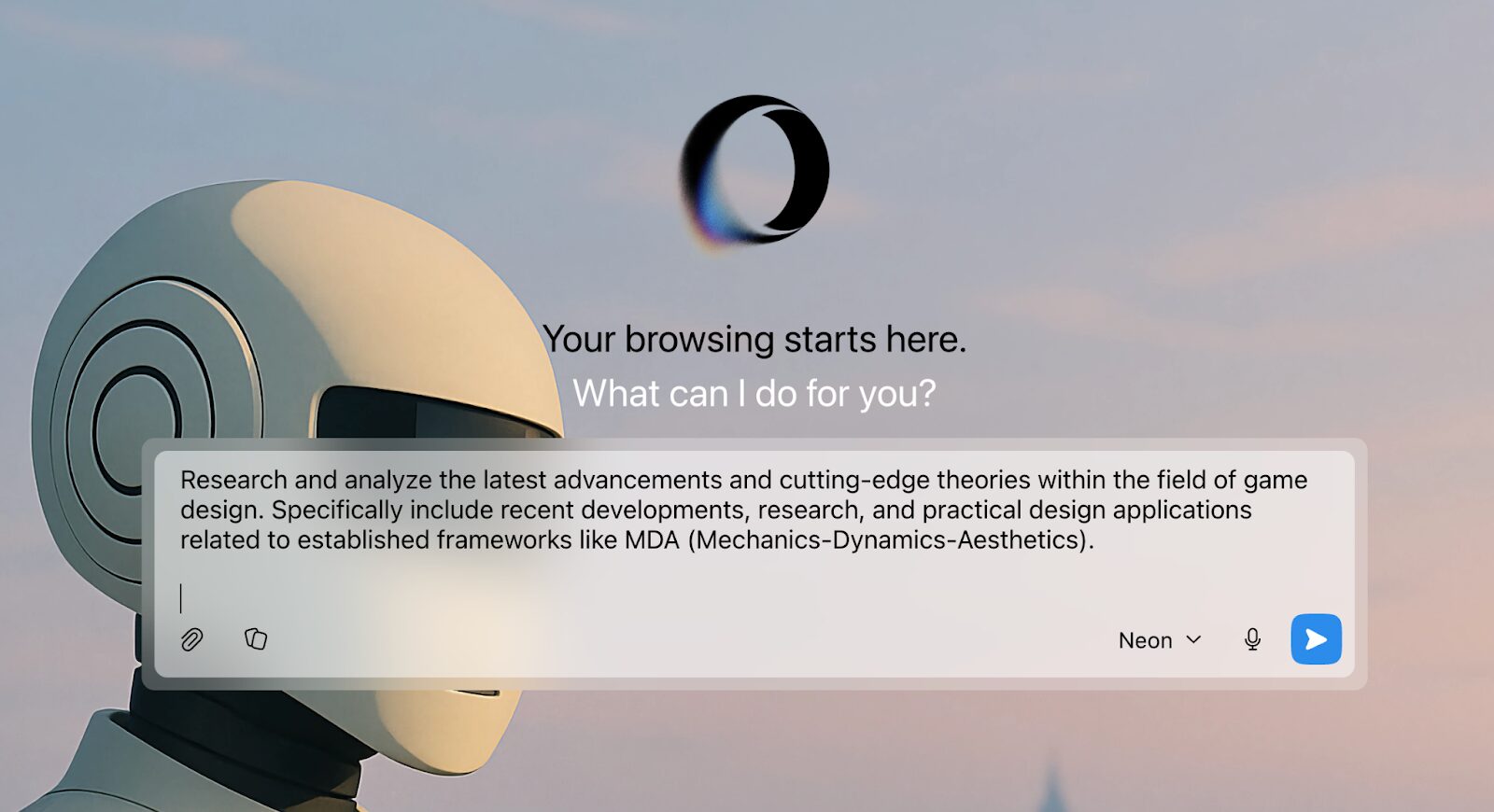
The result will be a structured report like the one here:
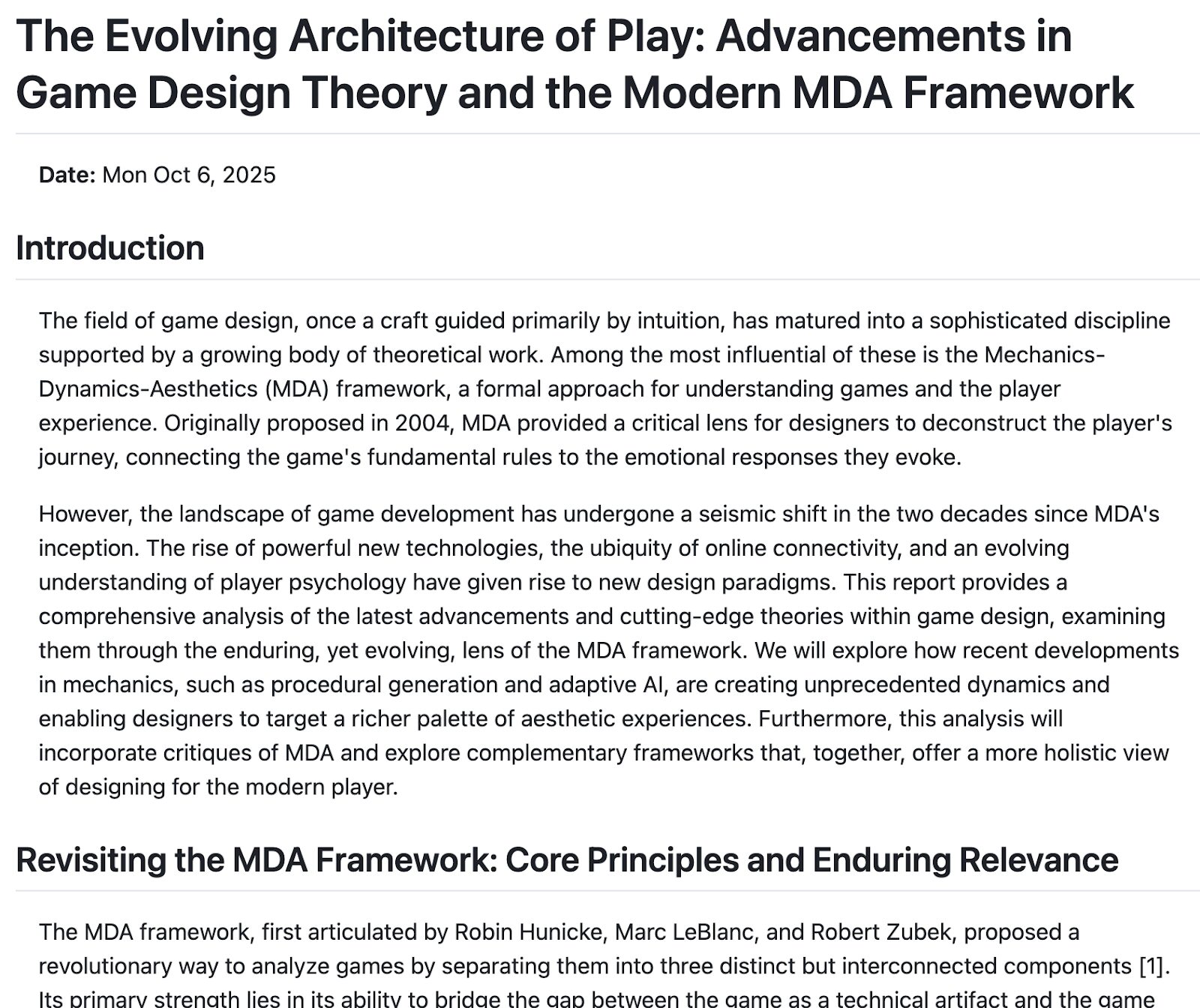
This might look obvious to those of you who are familiar with AI agents and tools, but it’s necessary to point it out if you haven’t tried them out because the answers from these agents are nothing like your typical AI chat bot. They are thorough and structured, and they also provide referenced sources for you to use and consult further:

Access to Opera’s Deep Research Agent
Since Opera Neon is currently available for a limited number of users, those of you who have already gotten access to the browser will get access to ODRA very, very soon. Stay tuned!
If you joined the waitlist already, keep an eye out for an email from us inviting you to try Opera Neon out.
If you haven’t joined the waitlist yet, you can do so at http://www.operaneon.com






